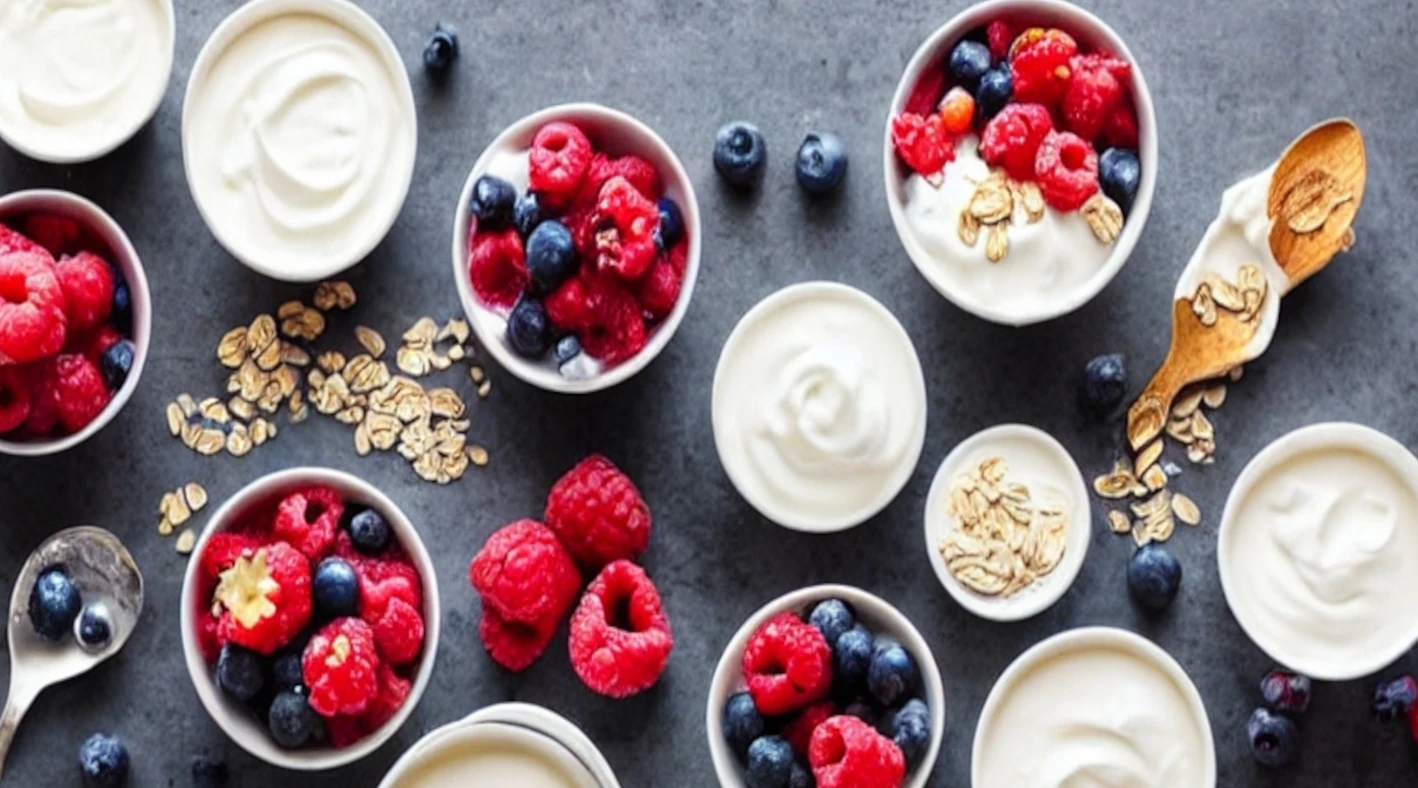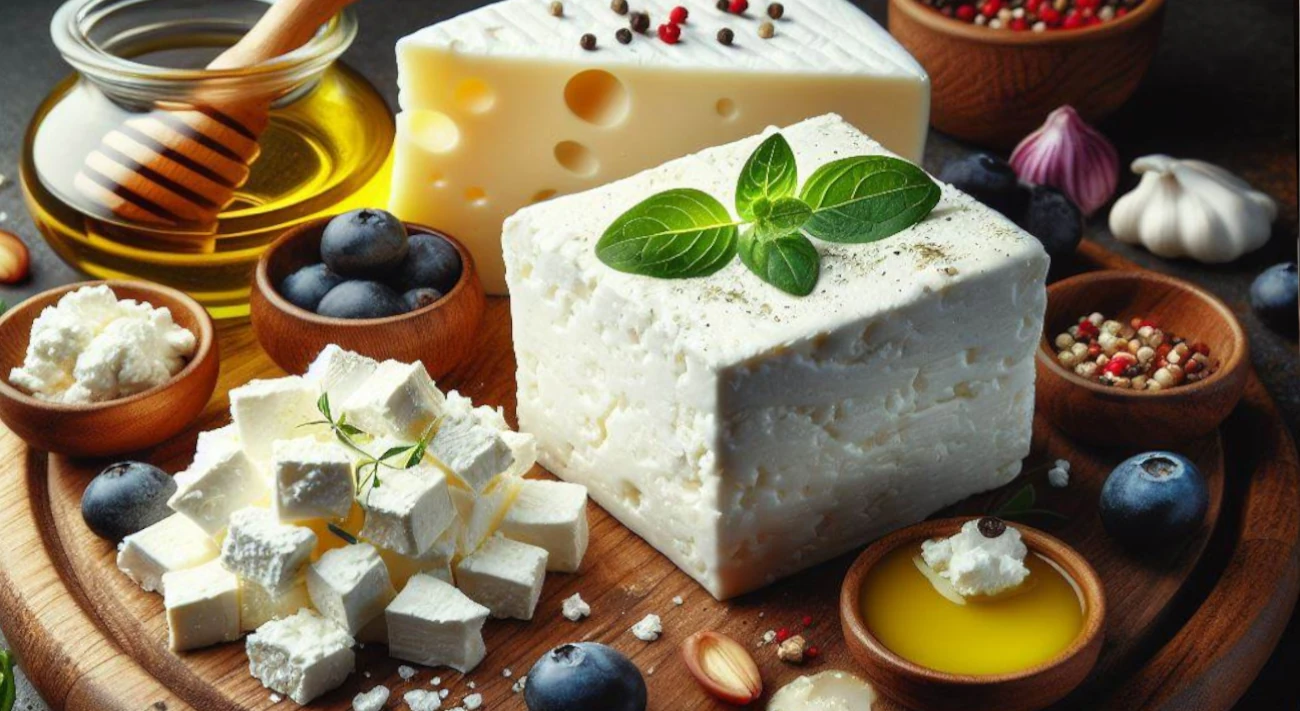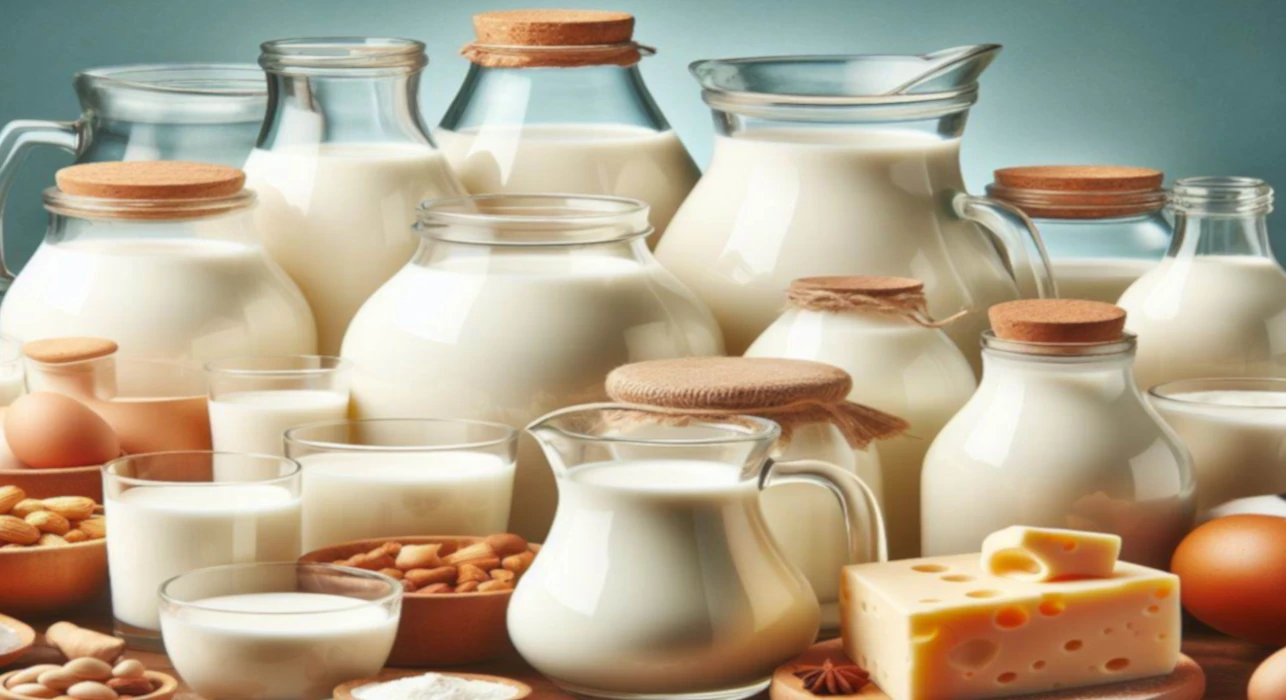Greek Yogurt Lysine and Arginine Info Sheet
Overview
Greek yogurt is a creamy dairy product made by straining whey and lactose from regular yogurt.Greek yogurt is high in protein, calcium, probiotics, and vitamin B12.
It’s also lower in lactose and has a creamy texture.
| Name | Lysine (mg/100g) | Arginine (mg/100g) | Ratio |
|---|---|---|---|
| Greek Yogurt | 471mg | 158mg | 2.98 |
Greek Yogurt contains 471mg of Lysine and 158mg of Arginine per 100g of product.
This means Greek Yogurt has a very high Lysine-Arginine ratio of 2.98.
Because Greek Yogurt contains much higher levels of lysine than arginine, it is highly recommended for people who suffer from herpes, as it may prevent outbreaks.
Lysine Considerations
Greek yogurt is an excellent source of lysine, providing about 5% of the RDI per 100 grams.
Lysine is an essential amino acid that supports protein synthesis, collagen formation, and immune function.
Lysine has the potential to prevent or treat cold sores, which are blisters caused by the HSV-1 virus, also known as herpes.
Lysine operates by stunting the proliferation of HSV-1, which relies on another amino acid, arginine, to reproduce and infect cells.
Lysine can only be acquired through our diet, and is present in multiple high-protein foods such as eggs, milk and cheese, fish, meat and poultry.
Arginine Considerations
Greek yogurt is a moderate source of arginine, providing about 2% of the RDI per 100 grams.
Arginine is a semi-essential amino acid that plays a role in several bodily functions, including wound healing and immune function.
Arginine can enhance your overall health and performance, such as lowering your blood pressure, healing your wounds, and boosting your exercise endurance.
Arginine can be made by the human body or obtained from foods like meat, dairy, nuts, and soy.
Unfortunately, the herpes virus is known to "feed" on arginine, and having a diet higher in arginine than lysine may increase the occurrence and severity of cold sores and herpes outbreaks.
Lysine-Arginine Ratio
Greek yogurt has a high lysine-arginine ratio, which means it has more lysine relative to arginine.
This may be beneficial for people with herpes simplex virus (HSV) infections, as lysine may inhibit the replication of HSV.
Both lysine and arginine are essential for protein synthesis and various other bodily functions.
They, however, have opposing effects on the herpes simplex virus, which causes cold sores and genital herpes.
Lysine can prevent the replication of the virus, whereas arginine can stimulate it.
Thus, a diet rich in foods with a high lysine to arginine ratio may help reduce the occurrence and severity of herpes outbreaks.
Foods that have a high lysine-arginine ratio include milk, cheese and yogurt products, fish, poultry, fruits, and vegetables.
These foods can provide the body with enough lysine to compete with arginine and inhibit the virus from replicating and causing flare-ups.
Dietary Considerations
Yogurt is a good source of lysine, which can help prevent or reduce the severity of herpes outbreaks.
Yogurt has up to three times as much lysine as arginine, which is an amino acid that can trigger herpes flare ups.
Plain yogurt is the best choice, as flavored yogurts may contain added sugars or artificial sweeteners that can worsen inflammation.
You can eat yogurt mixed with pieces of fruits, but it is best to limit consumption of cereals and nuts as these can have higher amounts of arginine.

For example:
A diverse and nutritious diet that supports your immune system and fights inflammation is essential.
This means you should eat lots of fruits, vegetables, whole grains, lean protein, and healthy fats, and steer clear of processed foods, added sugars, alcohol, and caffeine, which can harm your health.
You may want to take l-lysine supplements.
L-lysine is known to prevent herpes outbreaks and it can help stop a cold sore in its initial stages by "starving" the virus of arginine before it has a chance to cause a cold sore.
To prevent outbreaks, avoid foods that can cause allergic reactions or sensitivities, such as gluten, dairy, nuts, eggs, or shellfish.
These foods can harm your immune system and make inflammation worse.
Foods that can boost your immunity and fight inflammation are essential to prevent outbreaks.
Honey, yogurt, aloe vera, and chamomile are some examples of these foods.
They can also soothe your symptoms and help you recover quicker by reducing pain, swelling, and itching.
Check more food information






